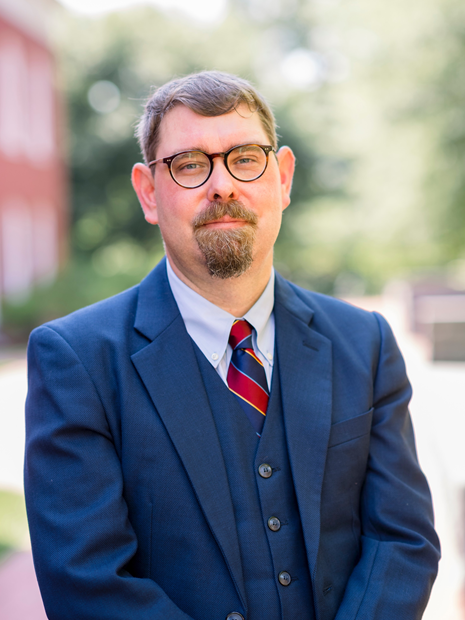This year’s UNRH (Undergraduate Network for Research in the Humanities) Conference was hosted at W&L. For those who are not familiar with them, UNRH is a group of undergraduate students interested in learning about and experimenting with innovative research methods in the humanities. Two W&L students, Lenny Enkhbold (’17) and Lizzy Stanton (’17), were part of the founding group that started the conference in 2015. “Having worked on this project for over two years, it was very rewarding to have received so much support and being able to actually experience the results. I know Lizzy feels the same way as well,” Lenny said. “We listened to the feedback from last year and tried to make the adjustments on any category that the participants from last year thought we could improve on.”
The various sessions for this year’s conference were hosted in the new Center for Global Learning. Over the weekend of January 20-22, students from different colleges and universities across the country gathered to discuss their projects and to attend DH workshops.
Formal presentations began Saturday morning. (check out the full schedule here) During the morning session, four different groups presented the cool projects they have been working on.
In the first presentation, titled “Digitizing a Church,” two students from Lake Forest College told us about their four week endeavor of creating a virtual reality of a church near their campus. The most interesting aspect of their project was it’s interactive nature; you could simply click on the stained glass windows of the church and a pop-up window would detail their importance. The students demonstrated their belief that virtual realities can help change the education industry, by allowing students to really engage with the material in a digital representation and could even replace field trips in the future.
Students from the University of South Carolina presented their app called “Ward One,” which they created in a classroom setting. The students wanted to heighten awareness about Ward One, a historically African American community that has been destroyed by development. The app allows people to explore the community as it was and highlights historical monuments in the area. The students have received immense positive feedback from the city. During the presentation, a taped interview showed a woman who had lived in the neighborhood stating that the app made her feel like “finally someone cares.”
One group, who detailed their experience creating their online game titled “Chronicle of Swashbuckling Rubbish,” were asked why they created the project. In response, they replied, “We wanted to create something and so we did.” Although the two presenters are English and music education majors at Cornell College, they found a way to manifest their different skills into a digital project.
The afternoon consisted of round robin sessions, which I was unable to attend. But Lenny, a host contact for this year’s conference, said that the afternoon was a great way to wrap-up the day. “It was nice to change up the presentation style and keep everyone fresh rather than having two more hours of sit-down formal presentations,” he said. (see photos from this year’s conference here)
Lenny, Lizzy and the rest of the leadership team seemed really excited about their progress and are already seeking volunteer’s for next year’s conference. I thought the conference was a really awesome event that allowed students to present their work to a wider audience of their peers from different schools, majors, backgrounds, etc.
Check out all the tweets from the conference here: https://storify.com/hsoutter/unrh-conference-2017
 Alex Gil specializes in twentieth-century Caribbean literature and Digital Humanities, with an emphasis on textual studies. His recent research in Caribbean literature focuses on the works and legacy of Aimé Césaire, including work in Aimé Césaire: Poésie, théâtre, essais et discours published by Planète Libre in 2013. He has published in journals and collections of essays in Canada, France and the United States, while sustaining an open-access and robust online research presence. In 2010-2012 he was a fellow at the Scholars’ Lab and NINES at the University of Virginia. He is founder and vice chair of the Global Outlook::Digital Humanities initiative and the co-founder and co-director of the Group for Experimental Methods in the Humanities and the Studio@Butler at Columbia University. He serves as Co-editor for Small Axe: Archipelagos and Multilingual Editor for Digital Humanities Quarterly. Alex Gil is actively engaged in several digital humanities projects at Columbia and around the world, including Ed, a digital platform for minimal editions of literary texts; the Open Syllabus Project; the Translation Toolkit; and, In The Same Boats, a visualization of trans-atlantic intersections of black intellectuals in the 20th century.
Alex Gil specializes in twentieth-century Caribbean literature and Digital Humanities, with an emphasis on textual studies. His recent research in Caribbean literature focuses on the works and legacy of Aimé Césaire, including work in Aimé Césaire: Poésie, théâtre, essais et discours published by Planète Libre in 2013. He has published in journals and collections of essays in Canada, France and the United States, while sustaining an open-access and robust online research presence. In 2010-2012 he was a fellow at the Scholars’ Lab and NINES at the University of Virginia. He is founder and vice chair of the Global Outlook::Digital Humanities initiative and the co-founder and co-director of the Group for Experimental Methods in the Humanities and the Studio@Butler at Columbia University. He serves as Co-editor for Small Axe: Archipelagos and Multilingual Editor for Digital Humanities Quarterly. Alex Gil is actively engaged in several digital humanities projects at Columbia and around the world, including Ed, a digital platform for minimal editions of literary texts; the Open Syllabus Project; the Translation Toolkit; and, In The Same Boats, a visualization of trans-atlantic intersections of black intellectuals in the 20th century.